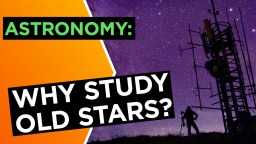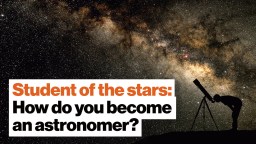astronomy
Groundbreaking new research suggests gamma-ray bursts are caused by a star’s collapsing magnetic field.
Need a distraction during these stay-at-home times? Look up tonight to see the first supermoon of spring.
Astronaut Garrett Reisman talks NASA, SpaceX, and where we’re headed next.
▸
4 min
—
with
New study of gamma rays and gravitational lensing points to the possible presence of dark matter.
Astronomers find these five chapters to be a handy way of conceiving the universe’s incredibly long lifespan.
Here’s a look at the space agency’s astronaut candidate requirements.
It’s the first time scientists have discovered an animal that doesn’t perform aerobic respiration.
MIT engineers devise a decision map to identify the best mission type to deflect an incoming asteroid.
A new report calls on the departments of certain scientific fields to double the number of black students by 2030.
The spacecraft is set to come closer to the star than any other Sun-facing camera before it.
Until about a decade ago, only two habitable zone planets of any size were known to astronomers: Earth and Mars.
Is information the fifth form of matter?
New study figures out how stars produce gamma ray bursts.
These needles in the vast galactic haystack take more effort to find, but they help piece together our origins.
▸
7 min
—
with
Russian astrophysicists propose the Casimir Effect causes the universe’s expansion to accelerate.
Princeton scientists find a new way to control nuclear fusion reactions.
The noted astronomer and author Carl Sagan came up with a famous dictum acronymed ECREE.
Superpowerful lasers for next-generation technologies are closer to existence.
From anti-gravity pens to cool model kits, these space-themed gifts will make any star gazer very happy.
The object, originally dubbed “Ultima Thule,” was renamed to “Arrokoth” due to the connection between the word “Thule” and the Nazis.
The idea that celestial objects exist within utterly immense cosmic structures is becoming inescapable.
Dinosaurs never left Earth, but they still traveled millions of miles through the Milky Way galaxy.
Can neural networks help scientists discover laws about more complex phenomena, like quantum mechanics?
A historic NASA probe sends back a treasure-trove of information from billions of miles away.
A new paper claims that scientists might be wildly mistaken about the density — and therefore, the shape — of our universe.
Scientists recently discovered a black hole that’s smaller than previously thought possible.
An Oxford scientist claims a Nobel-Prize-winning conclusion is wrong.
An Oxford scientist’s controversial theory rethinks dark matter and dark energy.
New research provides insights on the effect of the lunar cycles on wildlife behavior.
NASA astronomer Michelle Thaller explains what astronomers actually do, and how can you become one.
▸
9 min
—
with





























